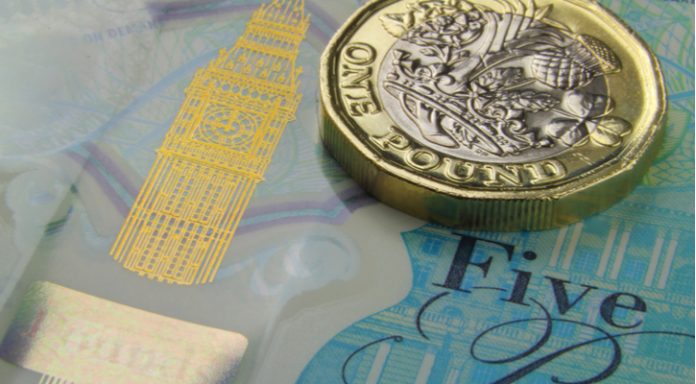Despite a run of weak data, a cautious Bank of England (BoE) and uncertainties over Brexit, the pound managed to climb higher against the euro on Thursday. The pound euro exchange rate touched a high of €1.1475, a 3 day high and is on track for its second consecutive winning week.
| What do these figures mean? |
|---|
|
When measuring the value of a pair of currencies, one set equals 1 unit and the other shows the current equivalent. As the market moves, the amount will vary from minute to minute. For example, it could be written: 1 GBP = 1.13990 EUR Here, £1 is equivalent to approximately €1.14. This specifically measures the pound’s worth against the euro. If the euro amount increases in this pairing, it’s positive for the pound. Or, if you were looking at it the other way around: 1 EUR = 0.87271 GBP In this example, €1 is equivalent to approximately £0.87. This measures the euro’s worth versus the British pound. If the sterling number gets larger, it’s good news for the euro. |
There had been report earlier in the week that the UK government would stay in the customs union after 2021 and Brexit. The pound had rallied on these reports as they would mean a soft Brexit. However, these reports proved to be incorrect. Instead the government announced today that it would look to stay tied to the customs union if no other suitable arrangement had been found to address the Irish border issue. The Brexit cabinet have agreed to the back stop plan to prevent a hard border in Ireland. This means that the UK could have a soft Brexit, which would be easier and more beneficial for UK businesses, the economy and therefore the pound. This pushed the pound higher.
| Why is a “soft” Brexit better for sterling than a “hard” Brexit? |
|---|
| A soft Brexit implies anything less than UK’s complete withdrawal from the EU. For example, it could mean the UK retains some form of membership to the European Union single market in exchange for some free movement of people, i.e. immigration. This is considered more positive than a “hard” Brexit, which is a full severance from the EU. The reason “soft” is considered more pound-friendly is because the economic impact would be lower. If there is less negative impact on the economy, foreign investors will continue to invest in the UK. As investment requires local currency, this increased demand for the pound then boosts its value. |
There is no high impacting data for the UK due to be released today. Instead investors will look ahead to inflation numbers which are due for release next week. Whilst inflation has been falling steadily for the past two months, some analysts are predicting an increase across the board in April. Should this be the case the pound could trend higher as higher inflation means an August interest rate rise by the BoE could still be on the cards.
| Why do raised interest rates boost a currency’s value? |
|---|
| Interest rates are key to understanding exchange rate movements. Those who have large sums of money to invest want the highest return on their investments. Higher interest rate environments tend to offer higher yields. So, if the interest rate or at least the interest rate expectation of a country is relatively higher compared to another, then it attracts more foreign capital investment. Large corporations and investors need local currency to invest. More local currency used then boosts the demand of that currency, pushing the value higher. |
Inflation Woes & Political Fears Keep Euro Lower
Eurozone data his week has highlighted the low inflation in the bloc. Whilst European Central Bank officials have remained optimistic over the health of the eurozone economy, they have also been careful to play down any possibility of monetary policy tightening soon.
In addition to a cautious ECB, concerns have been growing over the possibility of a coalition between two populist, Eurosceptic parties in Italy. Possible policies include potentially leaving the euro. The two parties are close to forming a functional government and the thought alone is concerning euro traders.
|
This article was initially published on TransferWise.com from the same author. The content at Currency Live is the sole opinion of the authors and in no way reflects the views of TransferWise Inc. |





